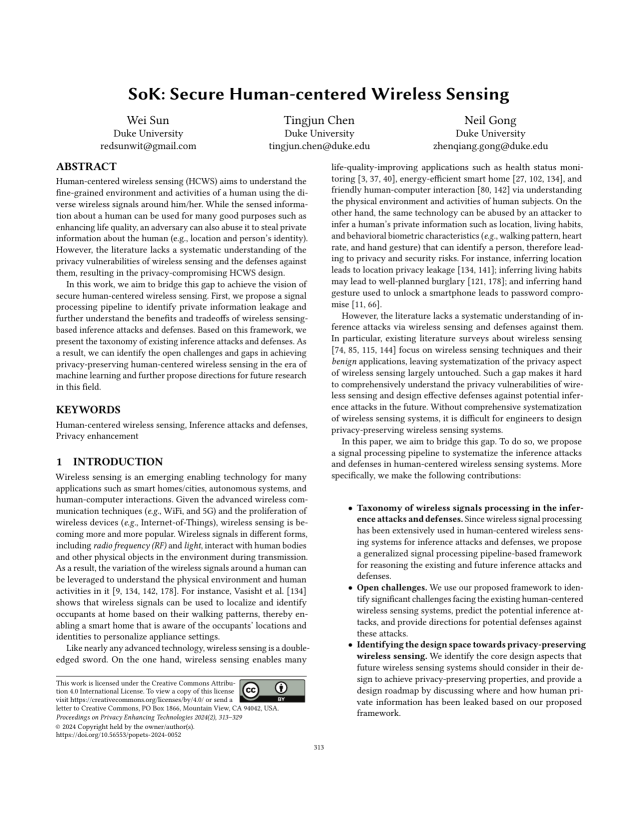SoK: Secure Human-centered Wireless Sensing
Authors: Wei Sun (Duke University), Tingjun Chen (Duke University), Neil Gong (Duke University)
Volume: 2024
Issue: 2
Pages: 313–329
DOI: https://doi.org/10.56553/popets-2024-0052
Abstract: Human-centered wireless sensing (HCWS) aims to understand the fine-grained environment and activities of a human using the diverse wireless signals around him/her. While the sensed information about a human can be used for many good purposes such as enhancing life quality, an adversary can also abuse it to steal private information about the human (e.g., location and person's identity). However, the literature lacks a systematic understanding of the privacy vulnerabilities of wireless sensing and the defenses against them, resulting in the privacy-compromising HCWS design. In this work, we aim to bridge this gap to achieve the vision of secure human-centered wireless sensing. First, we propose a signal processing pipeline to identify private information leakage and further understand the benefits and tradeoffs of wireless sensing-based inference attacks and defenses. Based on this framework, we present the taxonomy of existing inference attacks and defenses. As a result, we can identify the open challenges and gaps in achieving privacy-preserving human-centered wireless sensing in the era of machine learning and further propose directions for future research in this field.
Keywords: Human-centered wireless sensing, Inference attacks and defenses, Privacy enhancement
Copyright in PoPETs articles are held by their authors. This article is published under a Creative Commons Attribution 4.0 license.

